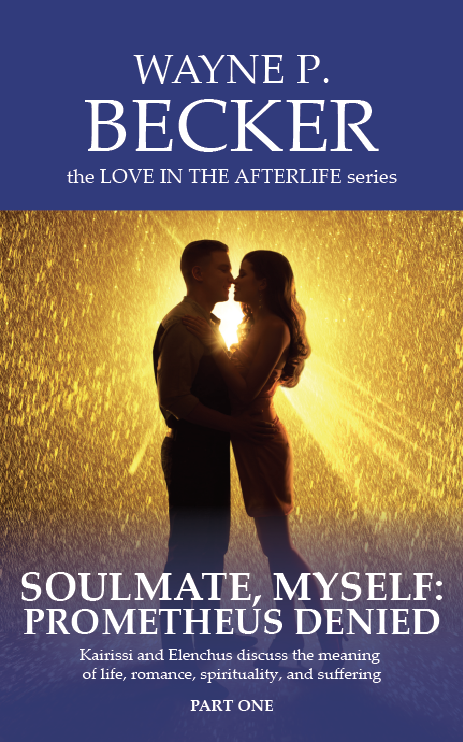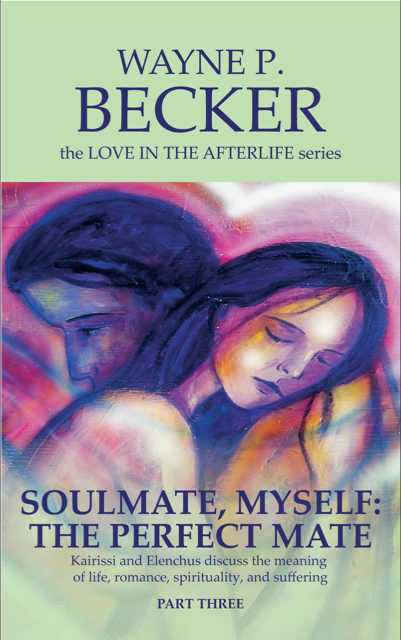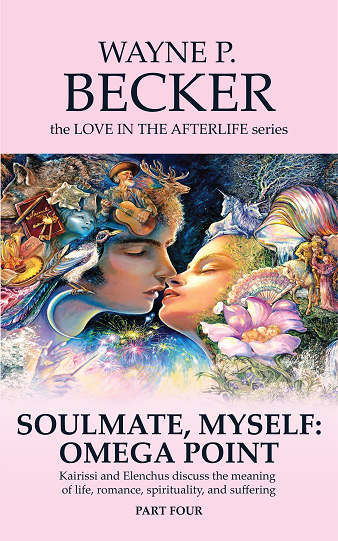|
Word Gems
exploring self-realization, sacred personhood, and full humanity
Soulmate, Myself:
The Perfect Mate
Aurora and Fico
return to the "contents" page
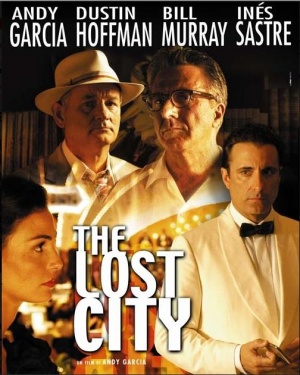
Wikipedia: The Lost City is a 2005 American drama film directed by Andy García. It stars Garcia, Dustin Hoffman, Inés Sastre, and Bill Murray.
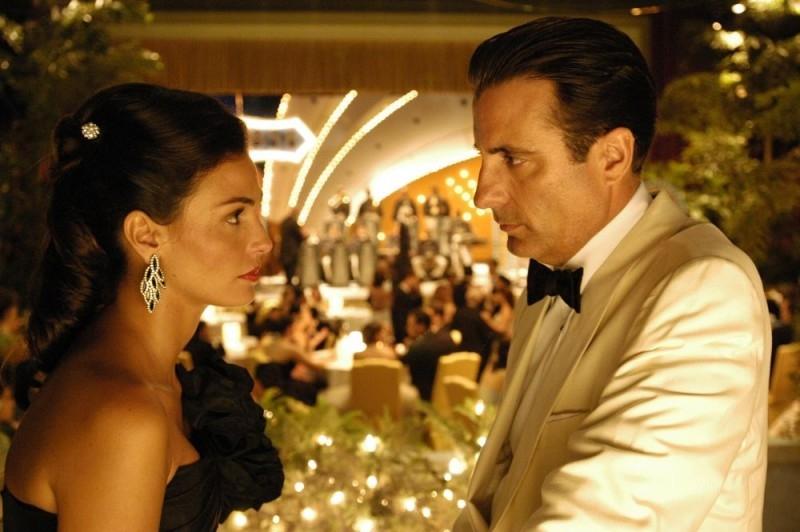
Aurora (Inés Sastre) and Fico (Andy Garcia)
Wikipedia: Fico Fellove is the owner of El Tropico, a swank nightclub in late 1950s Cuba. Fico lives for his family and his music, while facing the harsh realities of Batista's dictatorial regime. His brother Ricardo becomes a revolutionary, his brother Luis joins the democratic opposition, and his father Federico, a well-respected university professor, pushes for change by constitutional, peaceful means.
When Ricardo is arrested and threatened with execution, Fico calls upon an old prep school friend Castel, now a police captain, for help. Ricardo is released from jail, and Fico offers to help him go to Miami or New York City, but Ricardo instead joins communist rebels headed by Che Guevara.
Fico is approached by Meyer Lansky, of New York's Genovese crime family, who wishes to open up a gambling room at El Tropico. Fico, who intends for his club to remain a place of music, turns down the offer. When a bomb later explodes at the club, killing Fico's star entertainer (who is also his lover), Fico assumes that Lansky is behind it. However, in the increasingly unsettled climate, he cannot be certain.
Luis becomes connected with a plot to seize the presidential palace, kill Batista, and restore democracy. The plot fails and most of the attackers are killed. Luis escapes but is killed later by Batista's secret police. At the urging of his mother, Fico tries to cheer up Luis’ distraught widow Aurora – Fico and Aurora fall in love.
The Communists seize power after Batista flees the country. Fidel Castro declares there will be no elections and Che Guevara oversees the arrests and summary execution of all those who supported the Batista regime. Among those to be executed is Captain Castel. Fico asks Ricardo, now a high-ranking officer in the new regime, to return the favor that Castel once carried out to save Ricardo's life, but Ricardo does nothing to save Castel.
Ricardo visits his uncle Donoso, a tobacco farmer and cigar maker. Donoso feels that while Castro may be in power now, “the land endures” and says that the farm will next pass to Ricardo. Ricardo announces that the reason for his visit is to appropriate the farm for the state. Donoso, furious, has a heart attack and dies. Ricardo, overcome by grief, commits suicide shortly after the funeral.
The revolution effects Fico in other ways. The musicians' union, controlled by Castro, has declared the saxophone to be an imperialist instrument and forbids its use. The club is eventually shut down on a flimsy pretext. After a chance meeting with Castro, Aurora is declared Revolutionary Widow of the Year and begins to work for the State, and she ends her relationship with Fico.
Fico's parents beg him to leave Cuba and start a new family. Reluctantly, he procures exit visas for himself and Aurora. In a last effort to convince her to join him, Fico barges in on a reception for revolutionary leaders and Soviet Bloc ambassadors, but Aurora refuses to go. He raises a toast to a democratic Cuba, then leaves the reception. He says his goodbyes to his parents and goes to the airport, where most of his money and possessions – including a prized family pocket watch from his father – are confiscated.
Fico begins a new life in New York. Working as a dishwasher and piano player at a Cuban club, he hopes to save enough money to bring his family to America. Meyer Lansky approaches him with an offer of a Cuban nightclub in Las Vegas, but Fico turns him down. He runs into Aurora, who is in New York as part of a Cuban delegation to the United Nations. He now realizes that Aurora is like Cuba: beautiful, alluring, but also damaged and unattainable. He decides now that his cause is to build a new life until he can return to the city he lost. Fico recites a poem by Cuban nationalist Father José Martí and commits himself to someday returning to his "lost city". He later opens a new nightclub in New York.
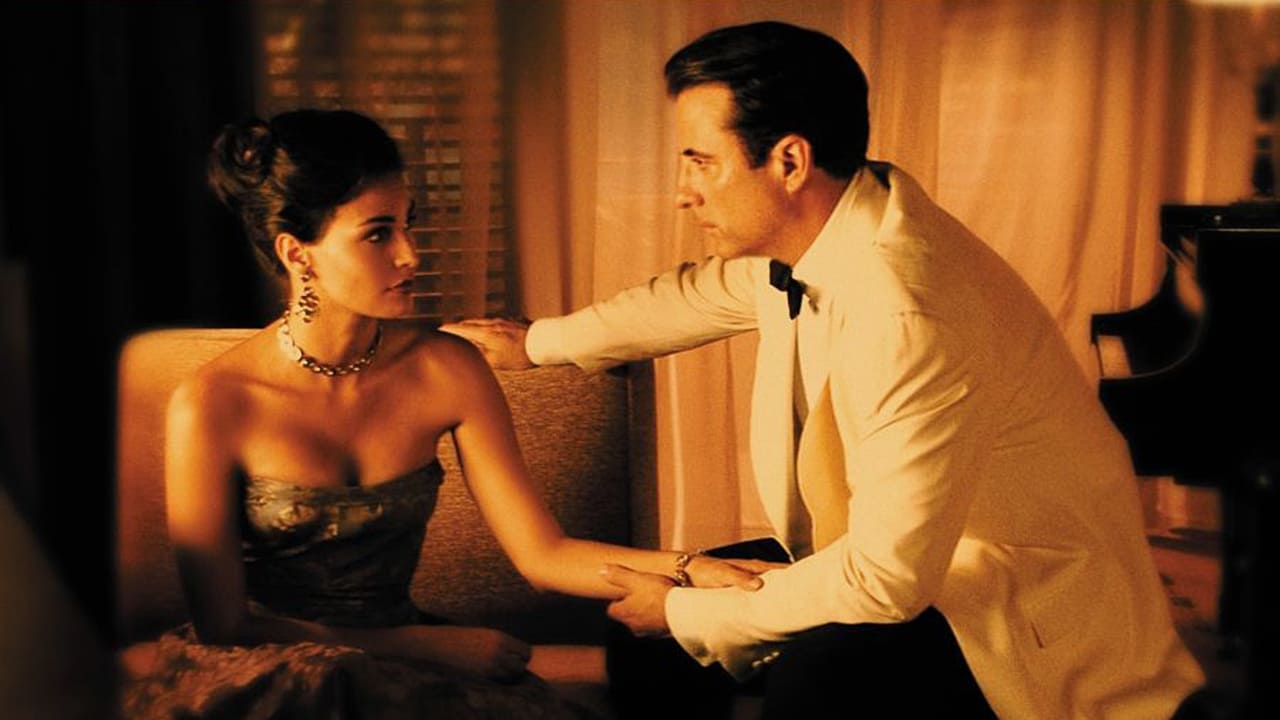

Elenchus. After seeing this movie, I grieve with the Cuban people for all that they lost with the coming to power of the Castro socialist-communist revolutionaries, better known as common thugs.
Kairissi. Havana was once a tropical mecca for tourists with great attractions. Look at it today, a cesspool of socialistic squalor, a brutal police state, a black hole for human rights.
E. And yet there are those even in the USA today, especially among totalitarian elites, who think what Castro did was just wonderful.
K. By the way, this movie seems to be based on a real person's story. Fico reinvented himself in New York, made himself a big success all over again, having lost everything when he left, with not a dollar to his name. The commies even took his heirloom pocketwatch, a departing gift from his aged father.
E. Such a great success story.
K. But, we shouldn’t talk about the disingenuities of socialism here; we’ve done that on the “Economics” page. Right now we have other Caribbean fish to fry.
E. That little reference to fried fish makes me hungry.
K. I think you just want to go out with me, but we can talk about it later.
E. Ok, then. There’s a scene that I think really captures the heart of the whole film.
K. Let’s explore it.
E. The commies are killing people indiscriminately. They’ve confiscated the plantation of Fico’s uncle and have shut down Fico’s night club. While there’s still opportunity to flee the country, he arranges for airline tickets for Aurora and himself to start a new life in New York.
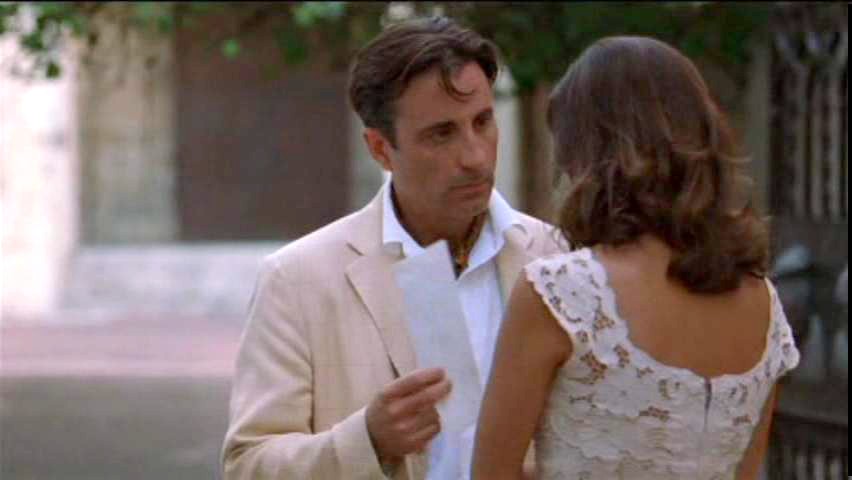
E. Fico confronts Aurora, says that he’s secured an exit visa for her, and they must leave the country within 24 hours, before it is too late. Aurora protests, is too caught up in Fidel’s revolution-cultism, to mentally break free:
|
there is nothing bigger than us
Fico: “Let's go.”
Aurora: “Fico, wait. I can't leave.”
Fico: “We must leave before it's too late to get out.”
Aurora: “Try and understand. Try to understand.”
Fico: “I understand that I'm lost without you.”
Aurora: “This is bigger than us.”
Fico: “There is nothing bigger than us."
Aurora: (silence)
Fico: “Listen to me. Can't you see what's happening? You're being taken advantage of. Is that what you want? You want to be told what to think the rest of your life? Because there's no end to this. This is madness. You deserve more. We deserve more. If you stay, your life will not belong to you. Please. Come with me. Please…”
Aurora: “In time, you'll understand.”
Fico: “There's no more time.”
|
K. Elenchus, I know you want to comment on Fico’s “there’s nothing bigger than us.” Are his words mere poetry, or something more?
E. It’s not just poetry. I’d like to give a real answer here. Fico’s assertion addresses the cultish mindset that has gripped Aurora. Here are some quotations from Eric Hoffer’s “True Believer” to help us talk about this:
|
“The less justified a man is in claiming excellence for his own self, the more ready is he to claim all excellence for his nation, his religion, his race or his holy cause.”
"We join mass-movements to escape individual responsibility"
“There is a fundamental difference between the appeal of a mass movement and the appeal of a practical organization. The practical organization offers opportunities for self-advancement, [but]… a mass movement … appeals not to those intent on bolstering and advancing a cherished self, but to those who crave to be rid of an unwanted self.”
“A mass movement attracts and holds a following not because it can satisfy the desire for self-advancement, but because it can satisfy the passion for self-renunciation.”
“People who see their lives as irremediably spoiled cannot find a worth-while purpose in self-advancement… They look on self-interest as on something tainted and evil; something unclean and unlucky. Anything undertaken under the auspices of the self seems to them foredoomed… Their innermost craving is for a new life – a rebirth – or, failing this, a chance to acquire new elements of pride, confidence, hope, a sense of purpose and worth by an identification with a holy cause."
|
K. Aurora kept on mouthing platitudes about “the glory of the revolution,” the soon-coming utopia, the new society of justice and equity for all. In a thousand pages, numerous Word Gems articles speak to this propaganda fantasy, but we cannot review it here; however, as we learn from Hoffer’s insights, the psychology of the typical cultish true-believer centers about a certain element of self-loathing, a desire to be rid of a “spoiled self,” a quest to immerse oneself in something larger than self – a self that is judged to be inferior and tainted.
E. And this is why Fico objected so profusely when she began with the “I want to be part of something larger than myself.” No sane person, who senses the “inner life” of the soul, would ever say this.
K. Aurora is a beautiful woman. We look at her and she seems fine, she seems put together, seems educated and sophisticated enough; but then she speaks to reveal all of this “I am worthless” drivel wrapped in the sutras of revolutionaries. What is going on here?
E. Well, we just said it: those who are out of touch with the “inner life,” the “true self,” will fall into a sense of self-loathing. And then they’ll start looking for a “strong father-figure” to help them feel safe and secure.
K. I found it particularly disturbing to see how pleased she was when Fidel awarded her the little trinket medal of Revolutionary Widow of the Year.
E. Well, that is a big deal, I guess; who wouldn’t be so proud; something to write mom and dad about.
K. She beamed like a gushing little girl receiving a gold star from teacher, so willing to please a master.
E. Let’s be clear here that we’re not trying to beat up the deluded Aurora. She’s such a messed up person right now, and represents so many in society today. I want to point out, as we often do, that the problem of cultish thinking is not confined to the sensational examples of Jim Jones’ crackpot religion or Fidel’s glorious revolution. In its essence, it’s a problem as close as the nearest "respectable" neighborhood church, political parties, most corporate cultures -- we could go on.
K. How can we make this clear so that people will understand?
E. Well, words alone won’t do it. Aurora could not be persuaded even though the guy who represented her best chance for true love in life was pleading with her. Once the “demons” of self-loathing are released, and they find a home with a charismatic “strong father-figure,” I’m not sure you can compete with that; not right now.
K. She's even ok with banning the saxophone. This kind of smug high-handedness is what cults do in their uber-righteousness. They will try to convince you that their little definitions of reality are the only legitimate ways of thinking.
E. And this is why cults so readily engage in censorship -- today, popularly called "political correctness." They can't win an open debate on the merits of the case so they engage in character assassination, fake news, and a barrage of disinformation in an attempt to control the free-flow of information, which is damning to their argument.
ignoring your own judgment, denying your own critical thinking - if you do this, then they've really got you
E. She’ll have to hit bottom and realize that Fico was right all along when he said that she no longer owns her own self, and that she’s being taken advantage of, and made to be somebody’s starry-eyed fool. The moment you surrender your own autonomy, and begin to ignore your own judgment, that is, to deny your own faculties of critical thinking -- then they've really got you -- and it might take a "cult deprogramming hospital" on the other side to bring you back to sanity. Father Benson talks about this.
K. (sighing)
E. But, if words could heal, I would say this: Cultism is everywhere; anyplace where there’s opportunity to make merchandize of people, to have power over them. Cultism will always, always, tell you that you are no good without the “strong father-figure.” There are a thousand ways they might communicate this to the fearful inner-child.

K. And if one is burdened by self-loathing, you’ll be ok with this "you're no good" assessment, because it’s what you – the “false self” -- already feel inside.
E. And so you stay in the abusive relationship or organization. You want to stay, feel you should, because there you can submerge the tainted self in the aura of the “strong father-figure.” Personal responsibility drifts away, just as Hoffer said.
K. Personal identity, too.
E. Which is not a problem for the cultishly minded, because the self is deemed to be “spoiled,” and needs to be gotten rid of, one way or another.
K. As we said, the sensational examples of cultism are easy to spot, but the ones in your neighborhood, or maybe your family, usually fly under the radar for most people. The “respectable,” the civic award-winning, examples of cultism in society have many ways of respectably making you feel no good. The churches are masters at this, with thousand of years honing their craft of preying on people's fear of death. Their “infallible doctrines” assert that you were born in sin and need the blessing of a Blackrobe to make you right.
|
more than drinking the koolaid
The long reach of cultism encompasses much more than crackpot churches. The root idea of cult offers the sense of "cut." This core concept of "cut" leads us to images of refinement and refashioning and, by extension, development, control, pattern, order, and system.
Cultism as systemization finds a ready home in religion and philosophy which seek to regulate and redistill the patterning and ordering of ideas. However, in a larger sense, the spirit of cultism extends to every facet of society. We find it scheming and sedulously at work in politics, academia, family, corporations, entertainment, science, artistry – anywhere power might be gained by capturing credulous and fear-based minds.
See the “cultism” page for a full discussion.

|
E. Ahh, but, you say, the pastor is such a “Nice Young Man,” and he smiles so sweetly, and the kids can play basketball in the church gym, and we can help out with the choir and whatnot.
K. But, in the midst of all this warm and fuzzy society, there remain those dark, psychologically-abusive doctrines from the Middle Ages and before, designed to keep you on a short leash, tethered by fear and guilt, which manumission will not be accomplished, they say, without the right magic words from the man in the pulpit.
E. We could go on about this mayhem all day as there’s so much to say, so much anti-humanistic infraction here, and in every aspect of society. Each person must come to the light of their own sacredness, in their own time, and by their own choice. However, as long as the inner-child feels “safe and secure” under the mantle of a Blackrobe, or a totalitarian-leaning politician promising "hope and change," or a charismatic thug-revolutionary like Fidel, he or she will be as impervious to reason as was Aurora to her pleading lover. You cannot argue people out of their fears; the inner-child will not, and cannot, listen to logic.

K. Elenchus, you were going to comment on the question of “poetry.”
E. Fico’s words were not poetry. There is nothing bigger than true love, and the lovers supplying it – certainly not a chanting rally by a generalissimo Dear Leader. Here’s the deal. You’ll need to look into this for yourself: Consciousness is the bedrock of reality, not any utopia from a thug in jackboots. See the many quotations from the scientists who discovered quantum mechanics. What does this mean for our discussion? True love, as fruit of the "union of spirits," as per "The Wedding Song," is an expression of Universal Consciousness; and there’s nothing greater than that. Sorry Fidel.
K. There’s too much to say here on this topic, and so we must direct our readers to our four books and major articles on the nature of authentic romance.
E. That’s right.
K. Elenchus, we have to leave this forum, but, on a totally different matter, I’d like to say – I too felt a sense of solidarity with the Cuban people in the loss of their country. And my wish is that, when you and I finally make it to the real world, Summerland, I want us to mingle far and wide, make many new friends from different countries, like Fico and his family, and meet all sorts of people and share and sample the best of their cultures.
E. Could we get some of that fried Caribbean fish.
K. I’m absolutely sure Fico will arrange it for us.
E. I’m all in then.
K. (smiling)
|
Why is it that many people will hate you just for disagreeing with them? They cannot hear you – even if reasonings are cogent and information is accurate.

Many are so identified with an ideal that, if you disagree with it, they will hate you, and some, if they could, would try to kill you.
Why the vitriol? Why not just believe what you want to believe and turn away and not say anything? But today, more and more, we see the venomous political attacks, the vicious statements on social media, the hate-filled rhetoric of those who disagree -- and with an air of moral superiority.
the inability of true-believers to hear you is an expression of allegiance to Dear Leader
When we thoroughly identify with a thought-form, an ideal, a mental picture of utopia – especially, a vision promoted by a Dear Leader, who wears a “mask of piety” claiming moral superiority, stoking the anger of a purported victim class – then the true-believer followers will feel justified to commit any atrocity in support of said utopian vision. The great psychologists call this sense of permission the "divine numen", ie, the approving "nod" from on high.
And what does it mean to “thoroughly identify with a thought-form”?
The dysfunctional ego is led by dark perceptions of “I don’t have enough” because “I am not enough.” And because it feels itself as “not enough,” it will seek for a “strong father figure,” a Dear Leader, under whose mantle the ego seeks for safety and shelter in a hostile world. The ego will “identify” with this external authority, that is, it will “make itself equal to” this faux authority, will psychologically attach itself to it.
And this is why we meet so many people who are so angry when they’re disagreed with. To them, it’s not just an argument to be lost, but it feels like they’re fighting for their lives. They’ve attached their existential sense of worth, and of life itself, to precepts issued by Dear Leader. It is the sought-for security of the little child finding refuge in the shadow of a godlike parent.
'I can't hear you'
Children play the game of "I can't hear you" with a mock, sing-song voice, and then pretend to create a barrier of noise with "la, la, la, la..."
Adults do this, too, when they block you out and can't hear you. It happens when they fully identify with some external authority.
ownlife
In his seminal and prophetic work, 1984 (published 1949), George Orwell coins a term, “ownlife.” Totalitarians encourage their subjects toward a servile docility, an identification and psychological attachment. Those who resist such sublimation of autonomy are accused of clinging to “ownlife,” an insistence on individualization - and as such are deemed to be “dangerous,” “insurrectionists,” “domestic terrorists” by the dystopian autocrats.
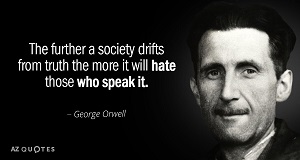
a terrorized mind is incapable of listening
This state of total identification with an external source of salvation, a surrendering of self and critical faculties, is fueled by a terrorized mind – a dysfunction which believes “I don’t have enough” because “I am not enough.” This fearful mental state makes one incapable of living freely, incapable of listening, incapable of opening oneself to the messages of life.
a terrorized mind will block anything that threatens its security and safety
This is why, when you meet a true-believer such as this, you cannot talk to them; no matter how cogent your reasonings, they are incapable of listening. The fearful true-believer did not accept his or her beliefs on the basis of rational argument and careful weighing of evidence, and so they won’t be “argued out of” their mental positions by careful reasoning, either. More information, more content of the mind, will not help them, but only an upward shift in consciousness will solve this problem.
they can't hear you
The terrorized mind of the "inner child" blocks out anything that might threaten safety and security, which they believe will be secured by obediently following the dictates of Dear Leader as "strong father figure".
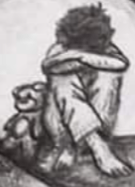
|
|
Why do family members, old friends, and romantic mates drift apart or even abruptly split?
When my daughter was in high school, she had a girlfriend; the two seemed inseparable. Later, the friend chose an alternate lifestyle, assumed that she’d be judged, then abruptly, and permanently, broke off friendship ties.
An example of my own: In the “Evolution” article I recounted that in senior-high English class I’d delivered a speech on the subject of “Creationism versus Darwinism.” Almost all of it, as I now perceive, was error. However, a good friend since childhood disagreed, summarily rejected me, and put me away with no reconciliation.
the hidden cause of all conflict
Each of us, likely, could offer scores of such examples. Krishnamurti’s teachings on the ego – concerning dualism, fragmentation, separation, division – are not of mere academic interest only to professional philosophers. This information holds the sacred key to understanding why planet Earth is the stage for war and conflict, not just on the international level, nor solely with religious or political groups, but also among family members, friends, and lovers.
Why do people drift apart or become immediate enemies? The short answer is that they become an offense to each other. People identify with, make themselves equal to, belief systems which, they assume, will "make me happy." They say "this is who I am," and "this is what I need to be safe and happy," and if you represent something different, their self-image will be threatened, their prospects of safety and happiness will seem to fold - and then you'll be rejected, no matter the strength of former bonds of amity. You'll be rejected because, don't you see, it's a matter of life-and-death to the ego.
the carefully crafted self-image
In his 17.December.1969 lecture, Jiddu Krishnamurti offers one of the most clear and insightful explanations concerning the inner workings of this dark dynamic. When we feel offended by someone, he said, “there is an image about yourself,” one that we ourselves build. This ego-image reflects one's cultural “conditioning.” Why do we build this image? We do so “as a means of security ... of protection ... of being somebody.”
fear is behind the curtain
And what do we find if we draw back the curtain of this ego-image? “Now, if you go behind that," Krishnamurti says, "you will see there is fear.” What is the composition of this fear? It is the existential fear of "I don't have enough" because "I am not enough."
Let’s analyze this ego-image more closely. Why do we build it? What are we protecting? If we allow ourselves to become very still, if we taste and sample the nature of this hidden fear, we will find that we’re protecting a self-image, a mental projection of what the ego would like to be and have:
“I am the person who needs to be seen as virtuous, respected, worthy of honor. And it goes without saying that I know what’s best for you.”
“I am the person who needs to be seen as right and correct. As such, I need you to believe as I do, to agree with all of my religious superstitions, and my self-serving political views. I need you to accept all of my inflexible opinions because your assent makes me feel, not just safe and secure but, that I’m worth something.”
“I am the person who needs to be seen as successful, 'in the know,' and winning. I want you to be impressed with what I am and what I have so that I’ll be counted as a somebody. I need these merit badges so that I can face my peer group, family, and community and be considered important."
“I am the person who craves to be viewed as a wise person, an in-demand friend, a counselor with ‘the answers.’ I count on you to offer me this prestige so that I can feel good about myself.”
"I am the person who grew up on the 'wrong side of the tracks.' My family culture held great disdain for education and knowledge. This disrespect for anything truly progressive has always held me back, creating for me a self-image of 'I’m not smart enough to succeed. I can't get a high-paying job, that's for other people.' And so if you come to me and suggest that, in fact, I do possess talents and strengths, then I will feel very uncomfortable, begin to panic, as you attempt to lead me out of my dysfunctional comfort-zone. At the first sign, with your help, that I I could actually advance myself, I’ll fall apart, swoon in terror, and then begin to blame you, and hate you, before I retreat and crawl back under the safety of my rock."
"I am the person who is comfortable with present ideas. They've gotten me this far (sort of). And they may be half-baked, a straw-house of illogicality, but, even so, these irrationalities offer a certain veneer of meaning to my life. In support of this charade, I surround myself with so-called friends with whom I share a tacit agreement, an unspoken pact: 'You must agree never to point out the non sequiturs of my beggarly superstitions, and I will agree to act as if I accept yours.' That’s the conspiratorial deal. However, if you come along with hard empirical evidence, well-reasoned positions, and suggest that I might want to take a more honest approach to what I believe to be true, well then, I will have to hate you for upsetting the applecart of my entrenched and time-honored unreasonableness."
"I am the person who carries on the traditions of my family. Unfortunately, these are more like peculiar shibboleths, marks of tribal distinction, but not of honor and dignity. I feel duty bound to ask, “What would mother do?” or “This isn’t the way dad did it.” I don’t have enough self-respect to live my own life, follow my own insights, quest for my own meaning and destiny. And if you come along and encourage me to think for myself, to break the apron strings (years after mom passed on), I will feel frightened, disoriented. And then I will blame and hate you for pushing me toward autonomy, full personhood, and self-realization."
“I am the person who needs you to make me happy. You can be my friend/lover/relative if you do exactly what I say and think just as I think. Anything less than this will be threatening to 'who I am.' I need you to love me -- just as I am, with all of my soft-underbelly beliefs -- to compliment me, to defer to me, so that I can judge myself as ok. Don't let me down, I warn you.”
“I am the person associated with you, and if you disappoint me, if you fall short of my expectations - especially after all I've done for you - if you fail to make me happy, if you begin to take on contrary opinions, then you will become an opposing force to what I want and to the image I’ve created for myself. If any of this happens, then, of course, I’ll have to get rid of you, even though we’ve meant much to each other over long years. I'll have no choice but to shun you.”
And so if anyone – sibling, friend, lover, child, parent -- stands as opposition to any of these ego-images, then the offending person will immediately be counted as an enemy, no matter a long history of cordial relation.
a closer look at the hidden fear
We find there’s more than one curtain to open. The ego’s need to be seen as right, virtuous, properly religious or political, is not the only hidden agenda. As one pierces the levels of self-obfuscation we discover the core terror which vivifies all of the ego’s activities. It’s the fear of death. This is the central terror, as we learn from the great psychologists.
This means that when one is attacked, there may be purported surface issues, but the real reason people rage and become apoplectic is the ego fighting for its life. It's identified with, made itself equal to, being right, virtuous, and all the rest, and if it fails to promote itself with these "images," then it will face a kind of psychological death. “Who will I be?” it asks, if these false-security images are minimized or taken away?
the high cost of following the truth wherever it leads
All this is most dire. The reality is, if you assiduously pursue the truth, no matter the cost or where it might lead, then you will lose (for a time) almost every last person who was once close to you. Why must it be so? - because you will become a living, walking threat to another’s carefully crafted self-image.
narrow gate, without fellowship
Editor's note: In his writings, Andrew Jackson Davis warns of the "narrow gate" that leads to life; few be that enter it. Those who live courageously by following the truth wherever it leads, as Davis points out, “will walk a pathway without fellowship of thy earthly brethren.” The cults have long employed the weapon of excommunication, shunning, and ostracization - a forced separation from friends, workmates, and family - toward anyone who disagrees with the hive mentality. This putting away occurs not just in religion but in dysfunctional families, corporations, academia, politics, and other power-seeking groups. They’re afraid of contrary opinion which might disembowel and expose shallow teachings. And so they’ll get rid of you for spreading "misinformation"; and you, as a truth seeker, will be censored and required to make your way through this world “without fellowship of thy earthly brethren.” But, be assured, a day of reckoning is but one missed heartbeat away.
We, ourselves - not some mythical Satan - are the focal point of all evil in the universe. It’s the pathological ego within; it’s the false self, the ego-images, ever attempting to find safety and security for itself, to bolster an inner neediness, the existential emptiness deep within.
We cannot become truly educated, nor reach a good level of wisdom and maturity, in the highest and best sense - or meaningfully prepare ourselves for Summerland or to be with one’s Twin Soul - without understanding the wiles and machinations of our own personal “heart of darkness.”
please, it’s very impolite of you to notice that I lack a self
Soren Kierkegaard: “But in spite of the fact that man has become fantastic in this fashion [i.e., lives unrealistically by denying his own mortality and impending death, the terror of which is covered up by palliatives such as ritualistic, form-based but empty, religion], he may nevertheless … be perfectly well able to live on, to be a man, as it seems, to occupy himself with temporal things, get married, beget children, win honor and esteem – and perhaps no one notices that, in a deeper sense, he lacks [an authentic] self.”
|
|






